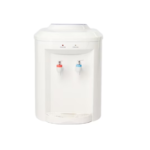All yoga styles, practises, and philosophies have their own unique twist, but they all emphasise the disciplined repetition of a series of movements that strengthen and tone muscles. Yoga also encourages healthy habits such as a healthier diet and regular physical activity.
Yoga quells the fluctuations of the mind, making it easier to live more consciously. This is important for healing, as your body and emotions respond better to a positive mindset.
Breathe deeply.
A major goal of yoga is to learn how to breathe deeply, which not only purifies your physical body but also calms the mind and takes you inward. Consistent yoga practise lowers anxiety levels and may improve your quality of life.
Yoga poses, or asanas, are designed to stretch and strengthen the muscles of the core and the lungs. They can help relieve back pain, neck pain, and shoulder pain, as well as symptoms of chronic conditions like asthma.
Studies show that practising yoga can significantly reduce your blood pressure and heart rate, improving cardiovascular health. In addition, yogic philosophy encourages a sense of compassion and empathy towards others. Combined with positive self-esteem, this helps foster better health, both physically and emotionally. This is called loving kindness.
Relax Your mind.
Yoga is designed to help you relax your mind and body. It relies heavily on meditation and self-reflection to calm the mind and help you control your thoughts and emotions.
Unwind your mind and embrace relaxation with Fildena 120 mg Tablets assurance. Let go of ED worries, restoring serenity and intimacy for a more fulfilled life.
Yoga will also help you become more aware of your physical body and how you hold tension in certain areas, like the muscles of your shoulders or neck or the muscles in your arms, legs, face, and back. This will help you let go of unconscious habits that lead to chronic muscle tightness and stress. It can also help you develop a greater sense of body acceptance.
Strengthen Your bones.
Adding yoga to your routine helps you feel better by enhancing your overall musculoskeletal health. Poses that require balance and strength increase postural improvement and build the bones in the hips and spine that are most vulnerable to fracture. Yoga also improves balance and coordination, which may help prevent falls that lead to osteoporotic fractures.
In fact, a study led by Loren Fishman showed that people with osteoporosis or osteopenia gained spine and hip bone density after practising a short series of yoga poses every other day for two years. This is because yoga poses use your own body weight to apply gentle stress to the bones and fascia that support your skeleton, which ultimately stimulates bone-making cells to lay down new, strong bones. However, you must be choosy about the poses you choose for your practise.
Detox Your Body
While “an apple a day keeps the doctor away,” so too can regular yoga classes. Moore says that twisting, inverting, and back bending in yoga help your body spend more time in the parasympathetic nervous system—rest and digest—which can strengthen your immune system and support healthy digestion.
Yoga can also help with issues like constipation, which is often exacerbated by stress. In addition to easing that discomfort, slowing down to chew your food and practising mindful eating can help you avoid overeating and feeling bloated afterward.
Most healthy bodies are naturally equipped to detoxify themselves, and many detox programmes touted by naturopathic practitioners and product marketers claim to optimise that capability with things like coffee enemas, colonics, and oxygen detoxes. But the best way to detox is through diet, exercise, supplements, and avoiding excessively processed foods.
Strengthen Your heart.
Every day, your heart pumps 2,000 gallons of blood to deliver oxygen and nutrients to the cells, organs, and tissues in your body. Getting plenty of strength training and cardiovascular exercise (150 minutes a week or more) will strengthen your heart so it doesn’t have to work as hard to pump blood through the body.
In addition to strengthening your muscles, yoga can reduce stress. Meditation and breathwork in yoga can help you calm the nervous system and reduce negative emotions like anger. These tools can improve your relationships with friends and family by making you a more compassionate and aware person.
Boost Your immunity.
A strong immune system can help you feel better, ward off common infections and diseases, and stay healthy. But if you’re always running low on energy, you may be doing something that is sabotaging your immunity.
Yoga can boost your levels of red blood cells and haemoglobin, which carry oxygen to the tissues, as well as reduce your blood pressure and decrease the level of clot-promoting proteins in the blood. This helps lower your risk of heart attacks and strokes. It also keeps your mind calm and reduces stress.
Relieve Stress
Stress is a normal part of life, but when it goes on for long periods of time, it can cause health problems like insomnia, high blood pressure, and anxiety. Yoga has been shown to reduce the levels of cortisol, the stress hormone, while also improving sleep, digestion, and the immune system.
One of the ways that yoga relieves stress is by easing tension in the shoulders. If you’ve been holding the phone or steering wheel in a death grip all day, prone yoga poses such as Child’s Pose with arms extended can help ease the tension.
Regular yoga practise can also improve mood by reducing depression and increasing serotonin levels. It can also improve the quality of your relationships with others by helping you become more present and mindful.


